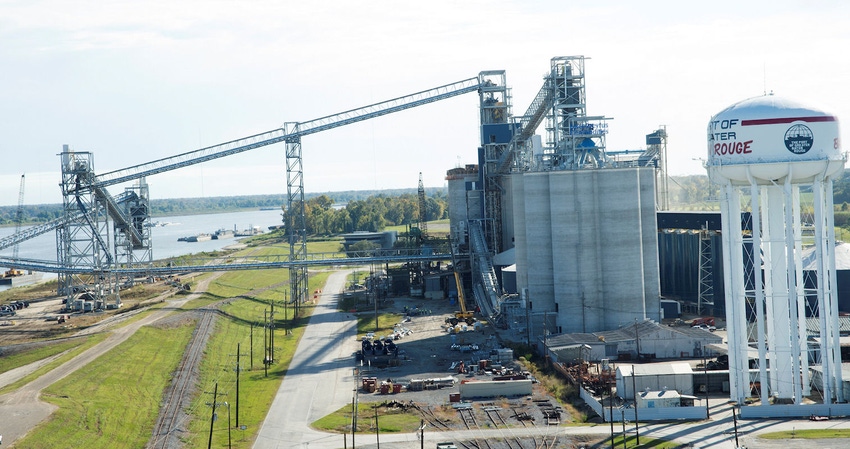Deal reached on Section 199A fix
National Council of Farmer Cooperatives and National Grain & Feed Assn. supportive of new stakeholder-driven proposal to solve unintended consequences created in tax reform bill.

House leaders are aiming for a Friday vote to fund the government with more than a temporary fix. Lawmakers are hopeful details will be resolved by March 14, giving them leeway ahead of the March 23 deadline to pass new legislation and avert a government shutdown. Reports out late Tuesday indicated that a stakeholder-driven proposal to resolve the unintended consequences of Section 199A of the Tax Cuts & Jobs Act has been reached.
Aides on both sides of the aisle recognize that passage could be pushed back until next week, since controversial issues like border wall funding remain unresolved.
The National Council of Farmer Cooperatives (NCFC) and National Grain & Feed Assn. (NGFA) issued a joint statement and said they support inclusion of the legislation to amend Section 199A as part of the fiscal 2018 omnibus appropriations bill this month and believe it warrants bipartisan support. The legislation, if approved by Congress, would be retroactive to the start of the 2018 tax year on Jan. 1.
NCFC and NGFA expressed appreciation to House Ways & Means Committee chairman Kevin Brady (R., Texas), Senate Finance Committee chairman Orrin Hatch (R., Utah) and the Congressional Joint Committee on Taxation for developing legislative language over the last week that is designed to achieve the two fundamental objectives of stakeholders:
First, to replicate to the greatest extent possible the tax benefits accorded to farmer-owned cooperatives and their farmer-patrons under the previous Section 199, also known as the Domestic Production Activities Deduction (DPAD), of the tax code as it existed prior to its repeal in the Tax Cuts & Jobs Act enacted on Dec. 23, 2017, and
Second, to restore the competitive landscape of the marketplace as it existed in December 2017 so the tax code does not provide an incentive for farmers to do business with a company purely because it is organized as a cooperative or private/independent firm.
To address concerns with the current law, the agreement permits cooperatives to their deduction based on rules substantially similar to those under old Section 199, including the flexibility of retaining a portion of their deduction to offset income at the entity level and/or pass through some or all of the deduction to their farmer patrons.
Farmers selling their agricultural products to agricultural cooperatives (of which they are a patron) would be able to claim a deduction equal to 20% of the net business income on such sales, subject to either the wage or wage/capital limitation if the farmer has taxable income above the $157,500/$315,000 thresholds.This deduction would then be reduced by an amount equal to what the farmer would have had to forgo under old Section 199 as the individual benefit had he/she sold to a cooperative (i.e., the lesser of 9% of the net income from the farmer’s sales to the cooperative or 50% of wages attributed to such sales). This modified deduction, as under current law, would be limited to 20% of the farmer’s taxable income (excluding capital gains). In addition to this modified deduction, the farmer would be able to claim the pass-through deduction from the cooperative (if any), up to the farmer’s taxable income (including capital gains), after applying the farmer’s individual deduction under Section 199A.
Read more on the comparisons of the old, current and modified rules by clicking here.
"Throughout the tax reform process that began last year, NCFC has consistently called on Congress to retain DPAD for farmer co-ops and their member-owners, and this legislation largely meets that goal. The old Section 199 had a proven track record of letting farmers keep more of their hard-earned money. We expect these provisions to do the same," NCFC president and chief executive officer Chuck Conner said. "By combining the individual-level business deductions that farmers can claim and the pass-through from their co-ops, farmers selling to cooperatives have the opportunity to see benefits in excess of the 20% 199A pass-through deduction."
Conner recognized the “tireless efforts” of Sens. John Thune (R., S.D.) and John Hoeven (R., N.D.) to ensure fair treatment for farmer co-ops and their member-owners. “They have brought together both sides and fostered an atmosphere that has made today's proposal possible," he said.
NGFA president and CEO Randy Gordon said great care was taken by stakeholders to develop a concept that provides tax relief to farmers, as envisioned in the tax reform law, while restoring to the maximum extent possible the competitive balance in the marketplace. NGFA noted that its members consist of an almost equal number of grain, feed and grain processing businesses organized as cooperatives and private/independents.
"Given the complexities of the issue and the different types and sizes of businesses, no legislation will ever be perfect for every income or business situation, but the stakeholder concepts on which this legislative language is based have been analyzed and reanalyzed in excruciating detail by tax experts representing both cooperative and private/independent businesses, as well as congressional tax staff experts," Gordon said. "We believe the solution merits enactment so that competitive choices remain available to agricultural producers, and the marketplace - not the tax code - determines with whom they do business. We appreciate the commitment of members of Congress, Republicans and Democrats alike, to get it fixed."
NGFA joined in thanking Thune and Hoeven, as well as Sens. Chuck Grassley (R., Iowa) and Pat Roberts (R., Kan.), for working with stakeholders and several Democratic senators who have expressed an interest in seeing the issue resolved.
About the Author(s)
You May Also Like





